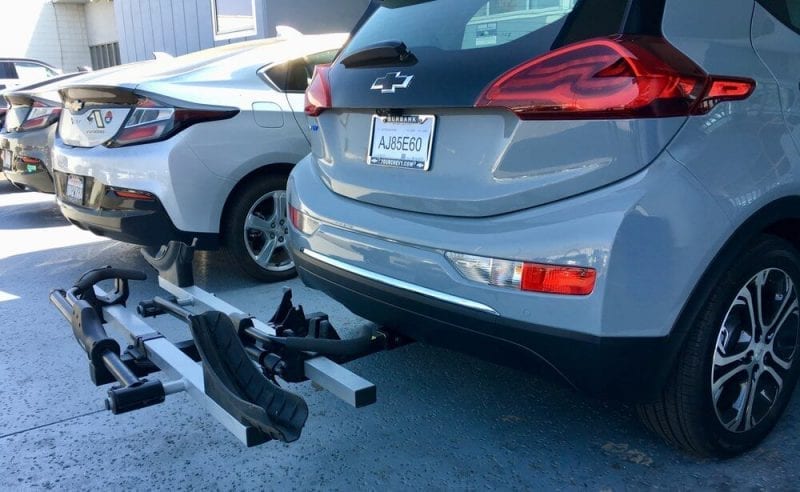A trailer hitch is a device that attaches to the rear of a vehicle and allows it to tow another vehicle. A trailer hitch can be used for a variety of reasons, including hauling cargo, personal watercraft (PWC), and motorcycles.
A trailer hitch is an attachment to the back of a vehicle that provides a place to connect a trailer. The trailer hitch is used to tow trailers, boats, caravans, and more.

A trailer hitch attaches to the rear of your vehicle and provides a place for the trailer’s coupler to attach. It can be either a receiver-style or ball mount style. A receiver style has a hole that accepts ball mounts with various shank sizes, while ball mounts have fixed shank sizes.
A trailer hitch is a device that allows a vehicle to tow a trailer or other implement. The trailer hitch is mounted to the frame of the vehicle, and the weight of the trailer is supported by the hitch. In North America, “trailer hitches” are generally referred to as “receivers”, as they have a hole in them (the “hitch”) through which the ball on the coupler fits.
The purpose of the trailer hitch receiver is to provide a means of attaching various types of trailers and dollies to motor vehicles.
A trailer hitch receiver is usually made of steel or aluminum alloy and may be coated with zinc for corrosion resistance. The inner surface of this receiver can be smooth or threaded for use with a screw-in pin (called a pin and clip or shank) or ball mount that attaches at an angle, allowing for greater clearance between vehicle and towed object when turning corners or backing up.
The main components of a trailer hitch include:
- The ball mount: This is what connects to your vehicle’s frame and allows you to connect to other vehicles or trailers. It’s typically made of metal or plastic, but some newer models use carbon steel instead.
- The receiver: This is where the ball mount fits into your vehicle’s frame when you’re not using it. The receiver can be made from one piece or several pieces welded together depending on how large it needs to be to accommodate various types of trailers.
- The wiring harness: This is needed if your trailer has lights or other electrical features such as running lights or brake lights so that these features will work properly when you are hooked up to your trailer.
How Much Does It Cost To Install Trailer Hitch
On average, most specialists are likely to charge anywhere from $225 to as much as $625+ to professionally install the hitch. Outside of the parts, most specialists will charge around $90 to $350 to install a hitch, considerably depending on the make and model of your car. The auto dealers can be substantially more, typically as much as $1,100.
Uhaul, for example, can install trailer hitches on any make and model of vehicle. They will include the parts, wiring, and even a warranty. The prices can greatly vary based on the brand and model of the automobile, but according to our investigation, it appears most cars can cost anywhere from $200 to $300. For example, a 2009 Toyota Corolla would cost $230 for the whole job, but others, as stated in our table below, might be much more.
If you were to install it on your own, you will need to consider the following parts: the hitch receiver, ball mount, hitch balls, pin and clip, and the wiring. A hitch receiver, depending on the max weight and part, can cost around $125 to $275, while a ball mount will be in the $20 to $40 range, depending on the drop and length.
Lastly, most hitch balls will be $10 to $20, the pin and clips will be approximately $3 to $6, and wire kits, depending on the make and model should be in the $50 range. To install it on your own, it will cost roughly $200 to $250 in parts.
| Car Make/Model | Price (parts + install) |
|---|---|
| Acura TSX | $220 + $130 = $350~ |
| Audi Q4 | $335 + $300 = $650~ |
| BMW x5 | $315 + $225 = $530~ |
| Chrysler Town and Country | $250 + $115 = $375~ |
| Honda CR-V | $250 + $135 = $400 |
| Honda Odyssey | $230 + $115 = $340~ |
| Subaru Outback | $259 + $135 = $400~ |
| Toyota Rav4 | $250 + $110 = $360~ |
| Volkswagen Touareg | $350 + $200 = $550~ |
Conclusion
Installing a trailer hitch is a project that is not overly difficult and can be finished in significantly less than an hour. Before you call a shop, you might want to investigate the possibility of installing it yourself. The majority of kits will come complete with instructions that are both comprehensive and straightforward to read.
Make every effort to steer clear of the area dealerships and instead look into a local mechanic or Uhaul facility. According to the findings of our investigation, the prices at many dealerships are significantly higher than those at a nearby location such as U-haul.

